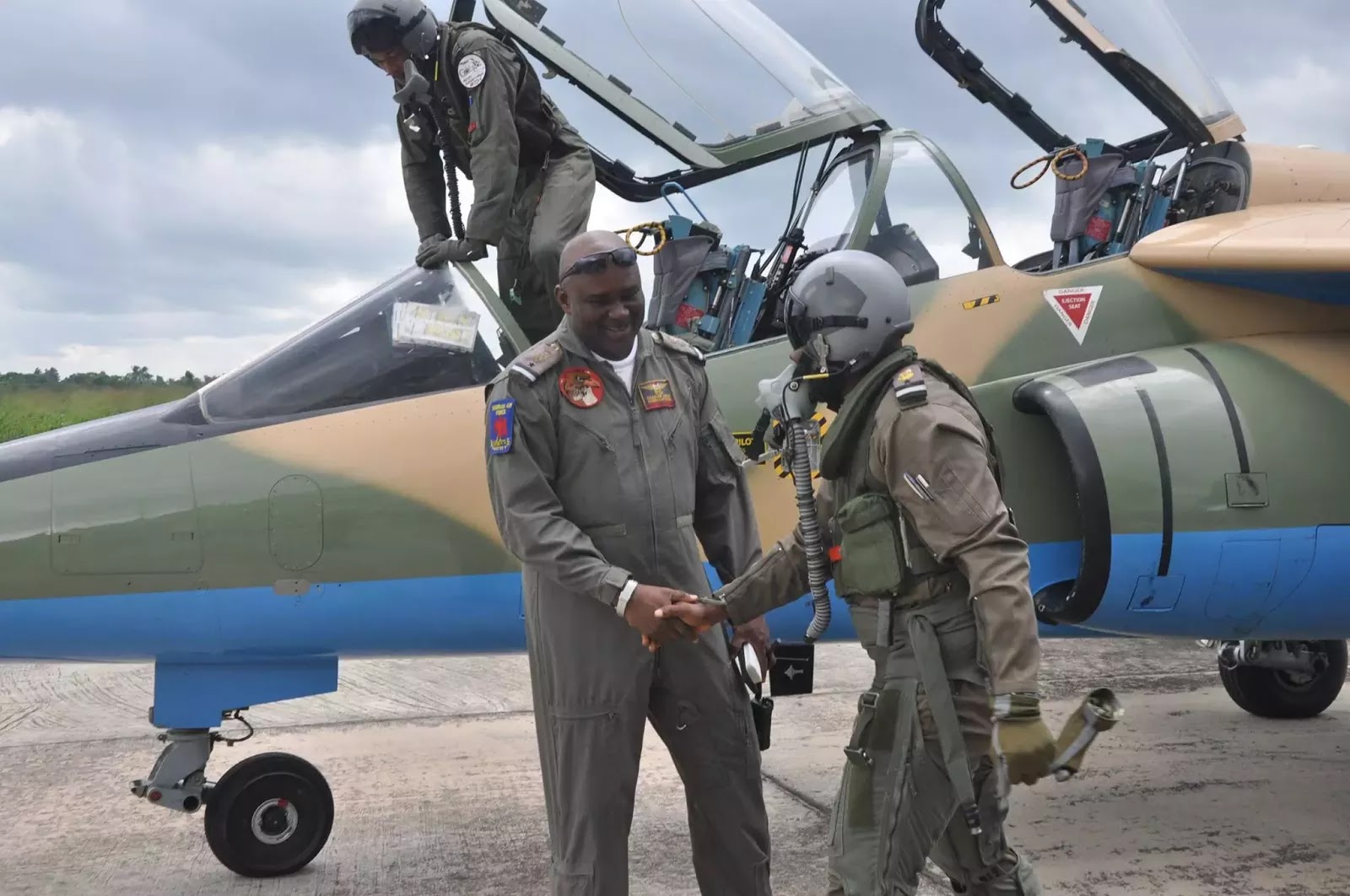344 total views today
By Sumaila Ogbaje, News Agency of Nigeria (NAN)
Since its establishment on April 18, 1963, the Nigerian Air Force (NAF) has played a vital role in defending Nigeria’s sovereignty, protecting its airspace, and contributing to regional stability.
By many accounts, the NAF has demonstrated remarkable commitment to its mission, with personnel displaying exceptional bravery, skill, and professionalism.
From counter-insurgency operations to humanitarian assistance, the NAF has consistently risen to the challenge, putting the nation’s interests above all else.
The NAF has played a crucial role in supporting ground troops in the fight against Boko Haram and other terrorist groups, and has also provided critical support during natural disasters, evacuating citizens and delivering aid to affected areas.
It has contributed to regional stability through its participation in peacekeeping missions and joint exercises with neighbouring countries.
As the NAF celebrates its 61st anniversary, it continues to modernise and adapt to emerging challenges.
The acquisition of new aircraft, upgrade of existing platforms, and investment in cutting-edge technology are some of the initiatives aimed at enhancing the NAF’s operational capabilities.
At the event commemorating NAF’s 61st anniversary, it showcased a lot of breakthroughs in platforms procurement and advancement in Research and Development (R&D) efforts as well as induction of the first batch of the newly acquired Agusta 109 Trekka Helicopters by President Bola Tinubu.
The president, who was represented by Vice-President Kashim Shettima, said he was very emphatic on assumption of office that security would be a top priority of his administration, as neither economic prosperity nor justice can prevail amidst insecurity and violence.
He said the induction of the new combat helicopters marked another milestone in his unwavering commitment to strengthen the nation’s armed forces, particularly the Air Force towards a more secure Nigeria.
Tinubu said the acquisition was made alongside orders like the Diamond 62 Surveillance Aircraft, the T-129 Attack Helicopters, the King Air 360 aircraft, as well as others that will be delivered in the coming months.
“Let me use this opportunity to assure you all that my administration will continue to support the Nigerian Air Force and indeed other security agencies by giving due attention and priority to fleet modernisation as well as training and welfare of our men and women in uniform.
“As your commander-in-chief, I understand that a well-equipped military is essential not only for securing our nation but also for preserving our democracy.
“A democratically stable Nigeria is fundamental to our national progress and regional peace and the defence of democracy requires a military that is well-prepared, well-trained and well-equipped,’’ he said.
The Chief of the Air Staff (CAS), Air Marshal Hasan Abubakar, said the dynamic security landscape of the nation demands an agile, well-equipped and responsive air force capable of rapid deployment across multiple theatres.
He said the reality underscored the need for continuous investments in modern platforms to bolster the Nigerian Air Force’s capacity to deliver air power across all spectrums of warfare.
Abubakar said the successful acquisition of the Augusta Westland 109 Trekka helicopter was a significant leap in our modernisation efforts of the NAF.
The air chief said the helicopter was designed to operate in challenging environments, providing critical support to both military and civil operations, including disaster relief and humanitarian missions.
“By inducting this platform into the NAF, the service is further strengthening its multi-domain operational capability, making us more responsive and efficient in the protection of Nigeria’s territorial integrity.
“It is noteworthy that from 2024 to date, NAF has received a total of nine brand-new aircraft into its inventory, comprising four C-129 attack helicopters, three King Air 360 aircraft, as well as the two Agusta 109 trekker helicopters being inducted.”
Abubakar said the NAF was poised to receive 49 more aircraft within the next two years, in line with Mr President’s firm commitment towards Nigerian security.
He said the 49 aircraft being expected included 10 additional A-109S trekkers, 12 AH-1 Zulu attack helicopters, 24 M-346 attack and ground attack aircraft, and three Kata 295 medium airlift aircraft.
According to him, the acquisitions will significantly bolster precision strike, ground attack, and air mobility capabilities, to support counter terrorism, and counterinsurgency operations.
In the area of building local capacity through research and development, the air chief said the NAF was optimising strategic partnerships in artificial intelligence, unmanned aerial vehicle research and development, small arms and rocket developments, as well as radar enhancements.
He said that NAF’s various research and development institutions, such as the Air Force Institute of Technology, were partnering with universities and government institutions towards accelerating their research and development capabilities.
“As part of efforts to optimise our employment of NAF platforms, we have recorded research and development breakthroughs, such as revalidation of the Alpha Jet aircraft ejection seats, retrofitting of unserviceable 68mm rockets, and the development of a test kit for determining the specific impulse of pyro cartridges, amongst several others.
“Also, just two weeks ago, I inaugurated a research committee tasked with initiating the local production of the C-5 57mm rockets integral to some of our attack platforms.
“These achievements highlight our shift towards self-reliance and resilience in defence technology,’’ he said.
During the signing of Memoranda of Understanding (MoU), with Lagos State University and a local defence firm, EPAIL Nigeria, the CAS expressed the desire of the NAF to pursue locally driven solutions in addressing the nation’s security challenges.
According to him, in a rapidly changing world, the ability to continue to anticipate, rapidly adapt and innovate is imperative for the transformation of the NAF into an agile and resilient force that effectively meets the air power demands of national security in all operational environments.
Abubakar said the NAF had since 2015, flown over 8,000, conducted more than 80,000 sorties with only few verified incidences of collateral damage.
He said it represented an occurrence rate of less than 0.005 per cent, an exceptional record by global standards, particularly within the complexities of asymmetric warfare.
The CAS said that in the few instances where civilian casualties were reported, the NAF had promptly conducted investigations, accepted responsibility with deep regret, and taken necessary corrective actions to prevent future occurrences.
According to him, the service has proactively invested in advanced technologies and robust protocols aimed at preventing civilian casualties.
In his remarks, the Vice President, Defence Industries Association of Nigeria (DIAN), Ade Ogundeyin, commended the NAF for its continuous efforts in modernising air operations, enhancing research and development, and fostering civil military cooperation.
Ogundeyin said that DIAN was established to promote local industry, defence manufacturing, and enhance Nigeria’s military industrial capabilities, aimed to advance indigenous defence technology through innovation and strategic partnerships.
He said that by fostering partnerships between defence industries and institutions, research bodies, and the academia and private industries, Nigeria was positioning itself for self-sufficiency in aerospace technology and defence manufacturing.
Available data indicates that the NAF has contributed to UN peacekeeping operations, providing air support and transportation services to peacekeeping troops in addition to its internal security operations over the years.
By participating in global and regional security initiatives, the NAF has demonstrated its commitment to protecting Nigeria’s interests and contributing to international peace and security.
The NAF’s global ranking is 54th in terms of airpower, according to the Global Firepower Index 2025 while ranking third in Africa, behind Egypt and Algeria, with a firepower index of 0.5771.
As part of measures to mitigate civilian casualties during air operations, the NAF also unveiled the Civilian Harm Mitigation and Response Action Plans Document during the NAF Day 2025 Seminar.
The seminar was part of activities marking NAF’s 61st anniversary in Abuja.
Experts are of the view that with continuous training of its personnel, systematic upgrading and acquisition of modern combat equipment, the NAF will continue to prove its mettle in protecting Nigeria’s airspace. (NANFeatures)
***If used, please credit the writer and the News Agency of Nigeria














